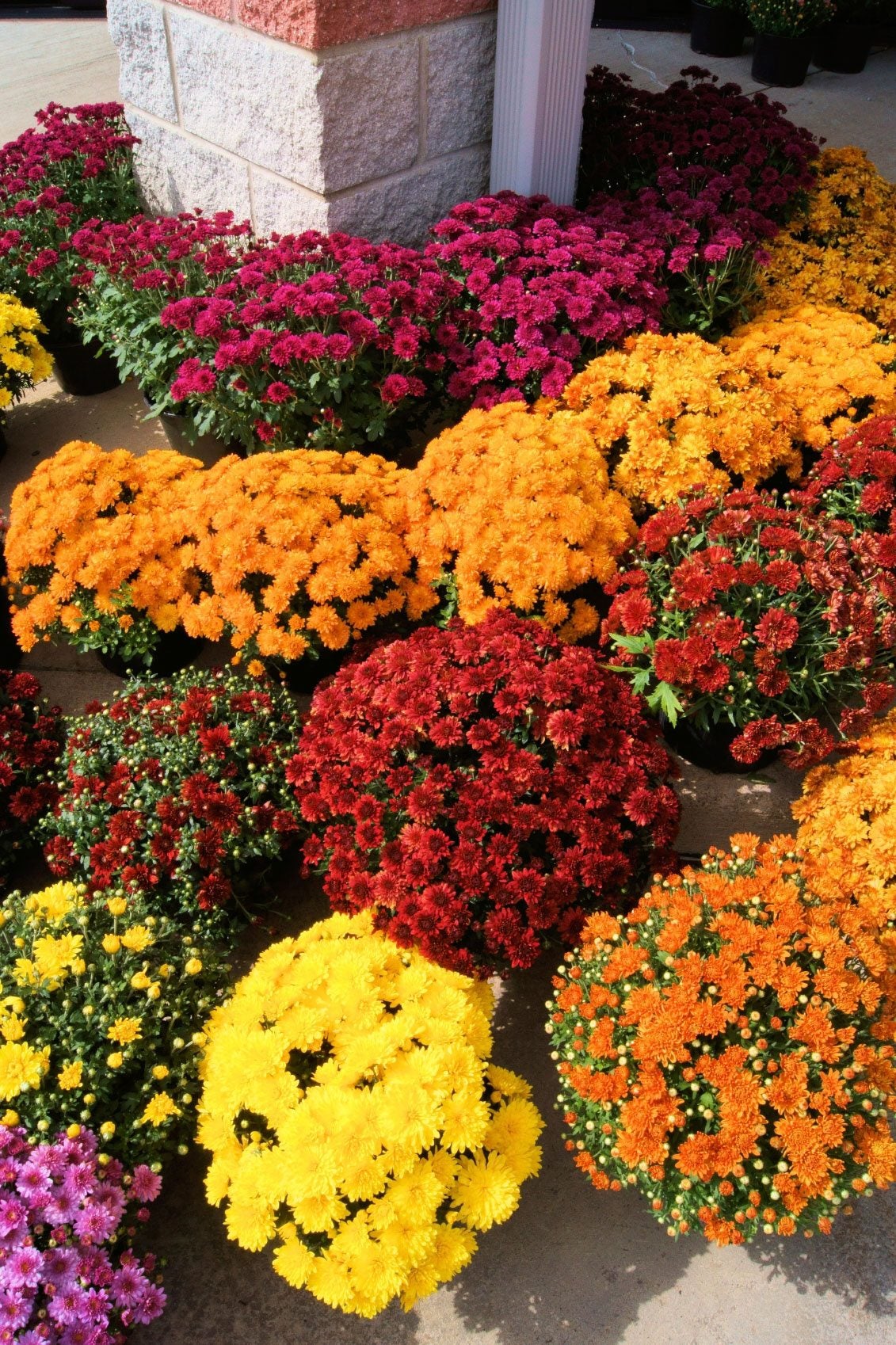Fertilizing Mums: Tips For Feed Mum Plants


Chrysanthemums are common interior gift plants. You may have run across one as a get-well gesture or birthday bouquet. They are also excellent landscape specimens and garden mums, which are the hardiest variety, may provide perennial excellence year after year. Mums require pinching in the vegetative stage, irrigation, chrysanthemum fertilizer, and protection from pests. Plant nutrition is essential to vitality and good growth. Feeding mum plants will help ensure their continued health and a steady supply of those lovely, rayed flowers. Read on to learn when to fertilize mums and how to fertilize mum plants for years of beautiful healthy plants.
When to Fertilize Mums
It is important to provide nitrogen and potassium to chrysanthemums during their vegetative phase. Feed the plants before flower buds form to promote healthy roots, bud development, and a vigorous plant. Start a feeding cycle in March to May, depending upon your zone. The general rule of thumb is to begin after all danger of frost has passed. That way any new growth forced by the nutrients will not be in danger of damage from icy weather. Continue feeding mum plants monthly until June to July or when the plant is forming flower buds. You can also use a slow-release fertilizer applied from March to April that will finish by July.
Chrysanthemum Fertilizer
Some gardeners use a granular application for fertilizing mums. These may be formulated with a 6-2-4 or 4-2-3 analysis. The rate should be 1 pound (0.5 kg.) per 100 square feet (9.5 sq. m.) of the garden bed. Soluble fertilizers are also useful. They are mixed to the manufacturer's instructions with water and applied to the root zone of the plant. For this method of feeding, use a 20-20-20 or 15-15-15 balanced nutrient solution. Time-release feeds only have to be applied once but will slowly release nutrients over a period of approximately 3 months. Use a 12-6-6 if you are applying a slow-release food but make sure you get it on early enough that the nutrients will be absorbed by midsummer. Do not feed again until the next spring.
How to Fertilize Mum Plants
If you use a soluble fertilizer, you can just water in the product at the beginning of the month. Dry preparations need to be measured and scratched into the soil. Follow this with a deep watering to carry nutrients to the roots and help prevent salt build-up in the soil. Container plants should be leached once per month to avoid excess salt in the soil. As the plant grows, pinch off the tips of the branches to force a more compact plant and more bountiful blooms. Do this once per month from May to late June or early July. Stop pinching at this time to prevent removing the new flower buds which will mature by the end of summer or early fall.
Sign up for the Gardening Know How newsletter today and receive a free copy of our e-book "How to Grow Delicious Tomatoes".

Bonnie Grant is a professional landscaper with a Certification in Urban Gardening. She has been gardening and writing for 15 years. A former professional chef, she has a passion for edible landscaping.